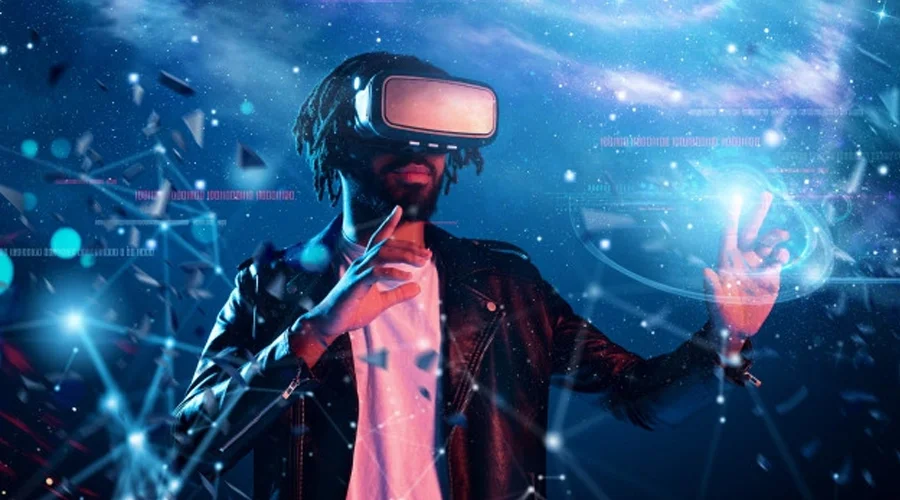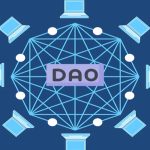
The future of blockchain gaming: What does the industry hold for NFTs?
- Cary
- March 11, 2023
- Blockchain
- Blockchain, Blockchain gaming, Blockchain gaming future
- 0 Comments
Blockchain technology has created a new era in the gaming industry by enabling decentralized game economies and ownership of in-game assets. Non-Fungible Tokens (NFTs) are one of the key innovations of blockchain technology, which have already transformed the gaming industry. In this article, we will discuss the future of blockchain gaming and how the industry holds for NFTs.
The Current State of Blockchain Gaming and NFTs
Blockchain gaming has already started to disrupt the gaming industry by enabling players to have ownership of their in-game assets. Players can trade and sell their in-game items and earn real money through blockchain gaming. NFTs, which are unique digital assets that represent ownership of a digital item or asset, are at the forefront of this revolution.
Currently, many blockchain games use NFTs as in-game assets, which players can buy, sell or trade. For instance, games like CryptoKitties, Axie Infinity, and Gods Unchained have gained popularity among players by using NFTs as in-game assets. These games allow players to breed, collect, and trade digital assets that have a unique value, making them different from traditional games.
The Future of Blockchain Gaming with NFTs
The gaming industry is constantly evolving, and blockchain gaming is no exception. As blockchain technology and NFTs continue to mature, we can expect to see more innovations and advancements in the blockchain gaming industry. Let’s explore some of the potential future trends of blockchain gaming with NFTs.
Interoperability
Currently, most blockchain games are isolated ecosystems with their own unique assets and economies. However, as the number of blockchain games increases, players may face the challenge of managing multiple in-game assets across different games. To solve this issue, we can expect to see more interoperability between different blockchain games. NFTs could be used as a common currency between different games, enabling players to use their assets in multiple games without needing to transfer them manually.
Integration with Traditional Games
As the popularity of blockchain gaming continues to grow, traditional game developers may start to integrate NFTs into their games. This integration would enable players to own and trade their in-game assets outside of the traditional game ecosystem. Moreover, it could provide an opportunity for game developers to monetize their games by allowing players to buy and sell their in-game assets.
Increased Adoption
The adoption of blockchain gaming and NFTs is still in its early stages, but we can expect to see more players and game developers adopting this technology. As more games are developed, and the benefits of NFTs become more apparent, we can expect to see a surge in the adoption of blockchain gaming. This growth in adoption could create new opportunities for players, game developers, and investors.
Integration with DeFi
Decentralized Finance (DeFi) has emerged as one of the most significant use cases of blockchain technology. DeFi enables users to borrow, lend, and trade cryptocurrencies without the need for intermediaries. We can expect to see more integration between blockchain gaming and DeFi, enabling players to borrow and lend NFTs, trade NFTs, and earn rewards through gaming activities.
Improved Scalability
One of the biggest challenges of blockchain gaming is scalability. Currently, most blockchain networks can only process a limited number of transactions per second, which can limit the number of players that can participate in a game. However, with the development of new blockchain technologies like sharding and Layer 2 scaling solutions, we can expect to see significant improvements in the scalability of blockchain gaming.
Virtual Real Estate
Virtual real estate could become another major use case for NFTs in blockchain gaming. As virtual worlds become more immersive and complex, players may want to own virtual property, such as virtual land, buildings, and other assets. NFTs could enable players to own and trade these virtual assets, creating new opportunities for investment and profit.
Player-Driven Economies
Blockchain gaming could enable the creation of player-driven economies, where players can earn real money through gaming activities. As blockchain games become more complex, players may become entrepreneurs, creating and managing their own businesses within the game. NFTs could enable players to create unique and valuable in-game assets that can be sold to other players, creating a vibrant and dynamic economy.
Improved Security and Transparency
One of the key benefits of blockchain technology is its security and transparency. Blockchain gaming with NFTs could enable players to have more control over their in-game assets and reduce the risk of fraud and theft. Moreover, blockchain gaming could provide a transparent and auditable record of all in-game transactions, enabling players to have more confidence in the game economy.
New Gaming Genres
Blockchain gaming with NFTs could enable the creation of new gaming genres that are not possible with traditional games. For instance, blockchain games could enable players to create their own game rules and mechanics, enabling them to develop unique and creative gameplay experiences. NFTs could also enable the creation of games that are entirely player-driven, where players are responsible for creating the game content and mechanics.
Integration with Augmented Reality
The integration of blockchain gaming with augmented reality (AR) could create new and exciting gaming experiences. AR technology enables players to experience virtual content in the real world, creating a more immersive and interactive experience. NFTs could enable players to own and trade virtual assets that can be displayed in the real world using AR technology.
Conclusion
In conclusion, blockchain gaming with NFTs has the potential to transform the gaming industry by enabling players to own and trade their in-game assets. The future of blockchain gaming with NFTs is full of potential, as we can expect to see more interoperability between games, integration with traditional games, increased adoption, integration with DeFi, virtual real estate, player-driven economies, improved security and transparency, new gaming genres, and integration with augmented reality. As the technology continues to mature, we can expect to see more innovations and advancements in the blockchain gaming industry.


